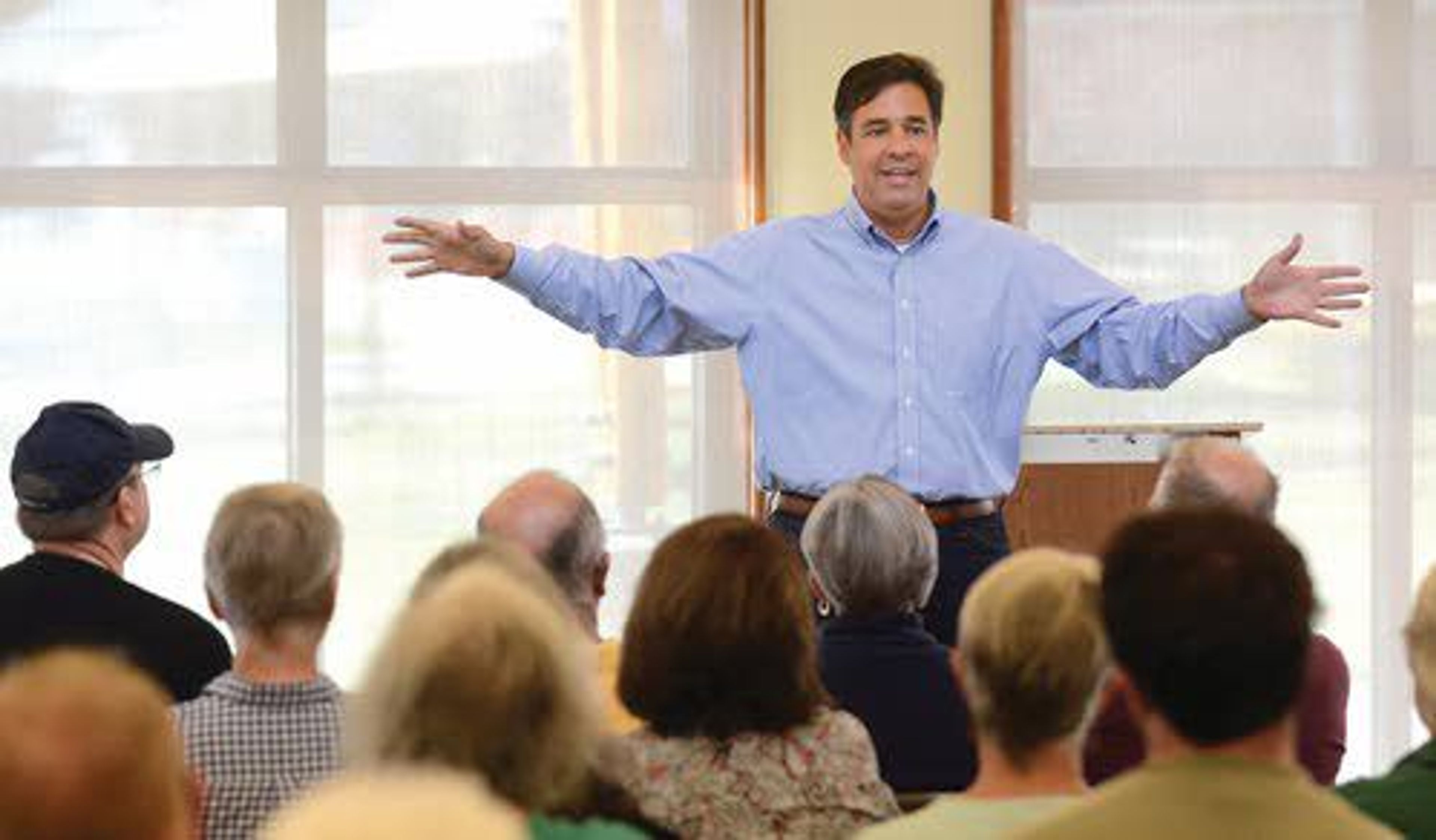Labrador talks 'birthright citizenship' in Moscow
U.S. rep. says he supports updating U.S. visa system
MOSCOW - Idaho Congressman Raul Labrador said he's researching whether children of illegal immigrants have an automatic right to U.S. citizenship, even if they're born here.
The 14th Amendment does say that "all persons born or naturalized in the United States, and subject to the jurisdiction thereof, are citizens." Some legal scholars, though, question whether illegal immigrants - and by extension their children - are actually subject to U.S. jurisdiction.
This debate over "birthright citizenship" has taken on new impetus in recent months, given the anti-immigration rhetoric Republican presidential nominee Donald Trump has used throughout his campaign. As recently as Wednesday, for example, Trump once again vowed to build a wall along the Mexican border and deport millions of illegal
immigrants.
Labrador, who worked as an immigration attorney prior to being elected to Congress in 2010, discussed his views on immigration and the issue of birthright citizenship during a town hall meeting Thursday in Moscow.
"If it (birthright citizenship) can only be changed constitutionally, then I wouldn't want to change it," he said. "If we change it through statute, maybe we could include it in any immigration reform. Congress decides naturalization laws, and we've allowed anyone born here to become citizens - but can we change that? I'm not sure. I'm still researching that."
Overall, Labrador agrees with Ronald Reagan's "City on a Hill" view of immigration, where any wall around the city has a gate through which immigrants can enter legally.
"I believe we do need a (legal) wall," Labrador said. "We can't just let in everyone who's poor or who needs a job. But we also need a gate to bring in the people we need."
He supports modernizing the U.S. visa system to focus less on family ties and more on providing entry for agricultural workers and others who have the job skills American businesses need. He also wants to emphasize enforcement first, before deciding what to do with the 12 million or so illegal immigrants who are already in the country.
More than 40 percent of those 12 million immigrants entered the U.S. legally, Labrador said. Beefing up efforts to prevent them from overstaying their visas is a better approach than deporting someone after they've been here for years.
About 60 people attended the Moscow meeting. Other issues that were discussed include:
- The federal budget - Labrador agreed Congress is falling down on the job by not approving the 12 annual appropriations bills that fund general government operations. However, he suggested the Senate was primarily to blame for that.
Senate Minority Leader Harry Reid, D-Nev., "doesn't want the Senate to pass any appropriations bills, because (President Barack Obama) has more authority if we don't," he said. "The House has sent the appropriations bills to the Senate, but the Senate refuses to do its job."
Actually, neither the House or Senate has completed its work - and with the fiscal year ending Sept. 30, it's unlikely they will. The House and Senate appropriations committees have approved competing versions of the fiscal 2017 appropriations bills, but only six have passed the House floor, while two have passed the Senate. To date, no appropriations bill has passed both chambers.
- Constitutional amendments - Two amendments that get a lot of attention are a balanced-budget requirement and term limits for members of Congress. Labrador is supportive of both, but suggested a third amendment aimed at single-issue legislation might be just as beneficial.
Idaho, for example, has single-issue language in its Constitution, which prohibits lawmakers from considering measures that combine multiple subjects in a single bill.
Congress, by contrast, regularly considers huge "omnibus" bills that combine appropriations and a multitude of policy changes.
"I hate those bills," Labrador said. "They usually have two or three things I like, along with about 40 or 50 things I disagree with. If we had single-issue legislation, it wouldn't matter how long someone had served in Congress because we'd have to do our job issue by issue. You couldn't hide your vote."
- Access to health care - Labrador said he doesn't believe government has a responsibility to provide health care for any but the most vulnerable citizens, but he does think it should take steps to reduce the cost of health care.
"I don't believe health care is a right," he said. "I think our job as legislators is to make sure costs are as low as possible, so people can access (services) on their own."
That means allowing more free-market competition, rather than increased government involvement.
"Every time we turn something over to the government, costs go up," Labrador said. "We need to figure out, as a society, how to bring costs down."
Labrador began the meeting by noting that, while constituents may disagree with his policy positions, helping them address whatever problems they're having with various federal agencies is something he and his staff take very seriously - regardless of whether someone voted for him or not.
"The most important thing our office does is provide service to constituents," he said. "We can't always help, but I promise you we'll go above and beyond."
---
Spence may be contacted at bspence@lmtribune.com or (208) 791-9168.
U.S. Rep. Raul Labrador will hold town hall meetings in Lewiston, Nezperce and Grangeville today. The times and locations include:
Lewiston - 9 to 10 a.m., Labrador's district office, 313 D. St., Suite 107
Nezperce - 11:30 a.m. to 12:30 p.m., Community Hall, 602 Fourth Ave.
Grangeville - 1:30 to 2:30 p.m., Super 8 Motel, 801 W. South First St.









